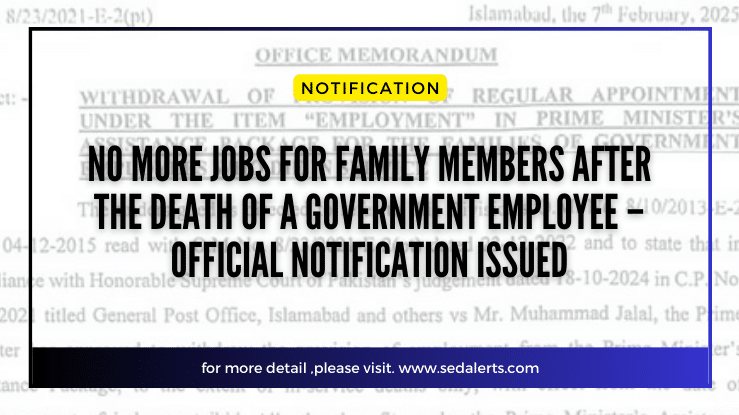Major Changes in Employee Leave and Pension Rules (Effective from June 2023)

On June 1, 2023, a new notification brought significant changes to the long-standing rules governing earned leave and pensions for employees. Here’s a detailed overview of these changes:
Changes in Earned Leave Encashment
Previously, employees could accumulate earned leave during their service and either:
- Encash up to 365 days of leave at their last drawn salary rate at the time of retirement.
- Take one year of leave with full pay a year before retirement.
However, under the new rules:
- Employees must apply for leave preparation for retirement (LPR) 15 months before their retirement date.
- If the government approves the leave, encashment is no longer an option.
- If the leave is denied, the employee will receive compensation equal to the salary of a newly recruited employee in their grade instead of their own last drawn salary.
This effectively reduces the encashment amount to nearly half for senior employees nearing retirement.
Notification on Pension Reforms (December 2, 2024)
Two significant notifications issued on December 2, 2024, have drastically redefined pension benefits for government employees:
1. Reduction in Monthly Pension Amount
- Future retirees will now receive only 75% of their calculated gross pension (approximately 70% of their basic pay).
- Previous pension increments (e.g., 15% in 2011, 7.5% in 2015, and 15% in 2022) will no longer be included.
Example:
- A gross pension of 85,312 PKR will remain unchanged for employees retiring after December 2, 2024.
- Employees retiring before December 1, 2024, could receive an additional 35,974 PKR from past increments, totaling 121,287 PKR.
2. Changes to Pension Eligibility and Rules
- Voluntary Retirement Penalties:
Employees retiring before the age of 60 will face deductions:- 10% for retiring 5 years early.
- 8% for retiring 4 years early.
- 6% for retiring 3 years early.
- 4% for retiring 2 years early.
- 2% for retiring 1 year early.
- Pension Calculation Formula:
Pension will no longer be based on the last drawn salary. Instead, it will be calculated as the average of the last 36 months’ salaries, which will likely result in a reduced pension amount. - Family Pension Restrictions:
Family pensions, previously granted to dependents such as unmarried daughters or minor sons, are now limited to:- The spouse only and
- For a maximum period of 10 years.
Impact on Existing Pensioners
The new rules also affect retired employees:
- Pension increases are now tied to government employee salary increases.
- For example, if an ad hoc allowance of 10% is added to employee salaries, pensioners will receive only 5% of that as an increase.
Reduction in Gratuity Amount
The formula for gratuity payments has been adjusted to a 75:25 ratio, significantly reducing the lump sum gratuity to approximately two-thirds of its previous value.
These changes have sparked widespread concern among employees and pensioners, as they directly impact their financial stability and retirement benefits.




